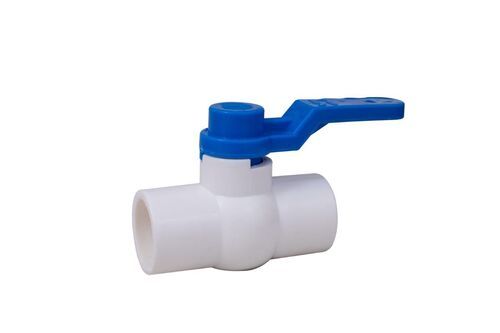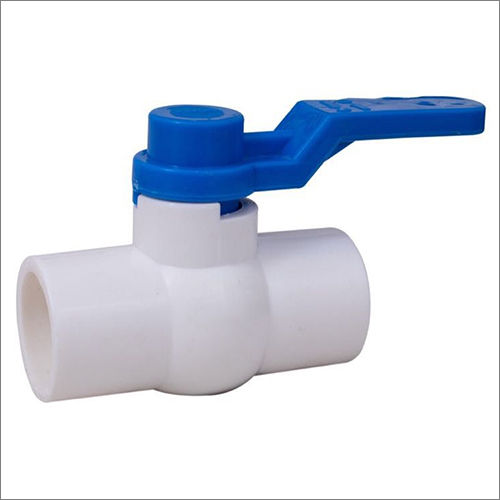Call us: 08045800295
UPVC Ball Valve
Product Details:
- Color White and Blue
- Size 1/2 Inch
- Usage Industrial
- Product Type UPVC Ball Valve
- Material UPVC
- Click to View more
UPVC Ball Valve Price And Quantity
- 120 INR/Piece
- 1000 Piece
UPVC Ball Valve Product Specifications
- UPVC Ball Valve
- Industrial
- 1/2 Inch
- White and Blue
- UPVC
UPVC Ball Valve Trade Information
- Cash in Advance (CID)
- 1000 Piece Per Day
- 1 Days
Product Description
Technical Description of UPVC Ball Valve
1. Material Composition
- Body Made from Unplasticized Polyvinyl Chloride (UPVC), which is rigid and does not contain plasticizers. This provides strength, durability, and resistance to deformation.
- Ball Typically made from the same UPVC material, ensuring compatibility and integrity in chemical resistance.
- Seals Commonly uses EPDM or PTFE seals for reliable sealing and chemical compatibility.
2. Design Features
- Type Full port design, allowing for maximum flow and minimal pressure drop.
- Handle Manual lever handle for easy operation; can be adapted for automated actuators if required.
- Connection Types Available in various configurations, including:
- Threaded (NPT/BSP)
- Socket Weld
- Flanged
3. Specifications
- Size Range Typically available in sizes from 1/2 inch to 6 inches, with larger sizes available for specific applications.
- Pressure Rating Usually rated for working pressures up to 150 psi at room temperature; ratings may vary based on size and temperature.
- Temperature Range Suitable for temperatures typically between -20F to 140F (-29C to 60C). Certain formulations can withstand higher temperatures.
4. Applications
- Widely used in water distribution systems, chemical processing, irrigation, and wastewater management due to its corrosion resistance.
- Ideal for applications involving acids, bases, and other aggressive chemicals.
5. Advantages
- Corrosion Resistance UPVC provides excellent resistance to corrosion, making it suitable for aggressive media.
- Lightweight Easier to handle and install compared to metal valves, reducing labor costs.
- Cost-Effective Generally lower in cost and requires less maintenance over time compared to traditional metal valves.
6. Installation
- Simple to install with clear instructions for threading, socket welding, or flanging.
- Recommended to use appropriate sealing methods (such as PTFE tape) for threaded connections to ensure leak-proof sealing.
7. Maintenance
- Minimal maintenance required; periodic inspection for leaks and wear on seals is recommended.
- Easy to replace seals if necessary, ensuring long service life.
Always consult specific manufacturer documentation for detailed specifications and installation guidelines to ensure optimal performance in your specific application.

Price:
- 50
- 100
- 200
- 250
- 500
- 1000+

 English
English Spanish
Spanish French
French German
German Italian
Italian Chinese (Simplified)
Chinese (Simplified) Japanese
Japanese Korean
Korean Arabic
Arabic Portuguese
Portuguese



